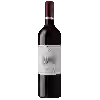
Domaine Bonnet GilbertCôtes du Marmandais Rosé
This wine generally goes well with
The Côtes du Marmandais Rosé of the Domaine Bonnet Gilbert is in the top 60 of wines of Côtes du Marmandais.
Details and technical informations about Domaine Bonnet Gilbert's Côtes du Marmandais Rosé.
Discover the grape variety: De Chaunac
Interspecific crossing between 5163 Seibel (2 Gaillard x 2510 Seibel) and 793 Seibel obtained by Albert Seibel (1844-1936). De Chaunac is related to the chelois and the chancellor. It can be found in Canada, the United States, Switzerland, ... in France it was little multiplied and therefore almost endangered.
Informations about the Domaine Bonnet Gilbert
The Domaine Bonnet Gilbert is one of of the world's greatest estates. It offers 16 wines for sale in the of Côtes du Marmandais to come and discover on site or to buy online.
The wine region of Côtes du Marmandais
Côtes du Marmandais is a satellite district of the Bordeaux wine region in Southwest France. It owes its name to the town of Marmande at its centre, which Lies on the North bank of the Garonne. The appellation AOC Côtes du Marmandais covers red, white and rosé wines produced from grapes grown in defined areas of the parishes around Marmande. The Garonne River divides the Marmande district into two Parts, the north and the south, which are eastern extensions of the Entre-deux-Mers and Graves regions respectively.
The wine region of South West
The South-West is a large territorial area of France, comprising the administrative regions of Aquitaine, Limousin and Midi-Pyrénées. However, as far as the French wine area is concerned, the South-West region is a little less clear-cut, as it excludes Bordeaux - a wine region so productive that it is de facto an area in its own right. The wines of the South West have a Long and eventful history. The local rivers play a key role, as they were the main trade routes to bring wines from traditional regions such as Cahors, Bergerac, Buzet and Gaillac to their markets.
The word of the wine: Discharge
In the traditional method, elimination of the yeast deposit formed during the second fermentation in the bottle.













